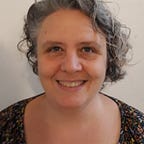On the frontline with those forced to flee their homes— Moses Oryema, Uganda
Bidi Bidi now hosts more refugees than any other settlement in the world
A father of three who likes processing honey in his free time, Moses has been working with the World Food Programme for 15 years, and is now on the front line of WFP’s response to the refugee crisis in Uganda. On the occasion of World Humanitarian Day (19 August 2017), here is his story.
Sitting in a volatile and conflict-ridden region, Uganda hosts the world’s third-largest refugee population, including people who fled from Burundi, the Democratic Republic of the Congo and South Sudan.
As acting head of the Arua field office in northern Uganda, Moses Oryema has been managing the South Sudanese refugee influx since renewed fighting broke out in South Sudan last July.
“At the height of the influx, in July and August 2016, we would work from Sunday to Sunday,” Moses recalls. “I especially remember the days when the settlement of Bidi Bidi was established in August 2016. Buses and truckloads of refugees arrived every hour or so, bringing refugees from the transit centre to their new home in a foreign country. This went on non-stop for months. Some days, we received 5,000 people, on other days the number shot up to 7,000 and more.”
With a population of almost 300,000, Bidi Bidi now hosts more refugees than any other settlement in the world.
Now that the influx has stabilized, Moses — who was subsequently appointed head of the Arua office — makes sure the World Food Programme’s (WFP) operations in northern Uganda run smoothly.
“I give WFP all my energy and many, many hours a day.”
“The food pipeline preoccupies me a great deal,” says Moses. “On an average day, I would receive around 25 phone calls — and at least 20 of them would be about the food pipeline!”
“To ensure we get our food assistance to the people we serve without delays, it is important to work well with the programme and supply chain teams and to place our orders — or calls forward — well in time. Otherwise, it can become a major headache.”
In his role, Moses also covers a variety of other duties, including overseeing construction works in settlements, following up on generators, vehicles, office repairs, security, fuel procurements and payments to partners and service providers — not to mention reports.
“We are required to submit weekly reports, sometimes even daily reports when there is a surge in the influx,” says Moses. “The head office needs plans, beneficiary figures and projections. I get questions from reports, communications and donor relations officers.”
When visiting settlements and transit centres, Moses also focuses on ensuring that the systems in place for food distribution are clear and well-oiled. “I always emphasize the need to standardize the food-distribution process,” he says. “There should be a clear sequence, from the roll call, to the verification of identities, to the grouping of refugees and the distribution of the food, and subsequent redistribution among them.
“I give WFP all my energy and many, many hours a day,” says Moses, whose work has taken him away from his family. “I think about the refugees as if they are my own children,” he explains.
Original interview by Lydia Wamala.
Lear more about WFP’s work in Uganda.
